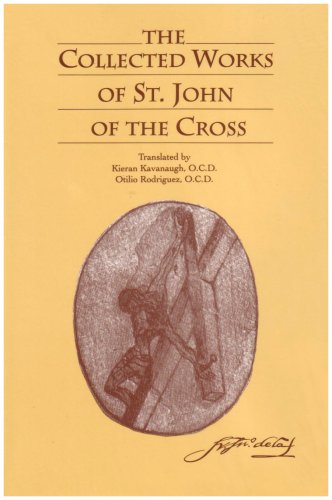In Books 2 and 3 of The Ascent of Mount Carmel St. John discuses the Active Night of the Spirit.
At this point (although the path isn't exclusively portrayed as a straightforward, step-by-step progression, but sometimes as an ongoing journey with each element intertwined), the soul has already mortified its attachments to the things of the world. Now it is time, in the Active Night of the Spirit, to purposefully mortify the attachments of the spirit.
This night, according to St. John, is darker and more painful than what has come before:
"The first night pertains to the lower, sensory part of human nature and is consequently more external. As a result the second night is darker. The second, darker night of faith belongs to the rational, superior part; it is darker and more interior because it deprives this part of its rational light, or better, blinds it. Accordingly, it is indeed comparable to midnight, the innermost and darkest period of night."
Just as the soul becomes attached to the exterior pleasures it gets from the things of the world, it also becomes attached to the interior pleasures it gets from its relationship with God. According to St. John, these must also be rejected because the soul is still not seeking God in purity, but only the consolations it gets from spiritual exercises. To overcome these attachments, the soul must again perform a strict self-denial.
"...all that is required for complete pacification of the spiritual house is the negation through pure faith of all the spiritual faculties and gratifications and appetites. This achieved, the soul will be joined with the Beloved in a union of simplicity and purity and likeness."
For those who disagree, and believe they can reach their goal without denying themselves in the spiritual realm, St. John offers the following assessment:
"For they still feed and clothe their natural selves with spiritual feelings and consolations instead of divesting and denying themselves of these for God's sake. They think denial of self in worldly matters is sufficient without annihilation and purification in the spiritual domain. It happens that, when some of this solid, perfect food (the annihilation of all sweetness in God – the pure spiritual cross and nakedness of Christ's poverty of spirit) is offered them in dryness, distaste, and trial, they run from it as from death and wander about in search only of sweetness and delightful communications from God. Such an attitude is not the hallmark of self-denial and nakedness of spirit but the indication of a spiritual sweet tooth."
Throughout Books 2 and 3, St. John discusses how the soul must mortify three distinct faculties – its intellect, memory, and will. The things the soul must reject, or at least be indifferent to, include: visions, locutions ("messages"), revelations, spiritual feelings, storing objects in the memory(!), and the experience of joys that come from temporal goods, natural goods (beauty, intelligence, etc.), sensory goods, (some of these overlap with what he has discussed as the goods of "the senses"), moral goods, supernatural goods, and spiritual goods.
Of all these, St. John counsels:
"...they should be the object of neither our aims nor our desires."
and
"...nothing but what belongs to the service of God should be the object of our joy."
As with the externals of the world, it is not that spiritual consolations are bad (in fact, he believes they are needed for beginners on the path), or even that they aren't from God (although St. John is unsure if they always are), but that the soul's attachment to them ultimately becomes an obstacle to pure Union with God.
As throughout much of his work, St. John seems overly harsh, especially to non-monastic ears. In his mind, without the most strict self-denial, the soul's journey to God will be forever stunted. His overarching method remains:
"...to divest and deprive oneself for God of all that is not God. When this is done the soul will be illumined by and transformed by God."
The Ascent of Mount Carmel is unfinished, but seems to be picked up in The Dark Night. St. John has described the active nights (active referring to the fact the the soul is actively doing the work of mortification), and will describe the passive nights – in which the soul can do nothing but allow itself to be passively acted upon by God – in The Dark Night.
